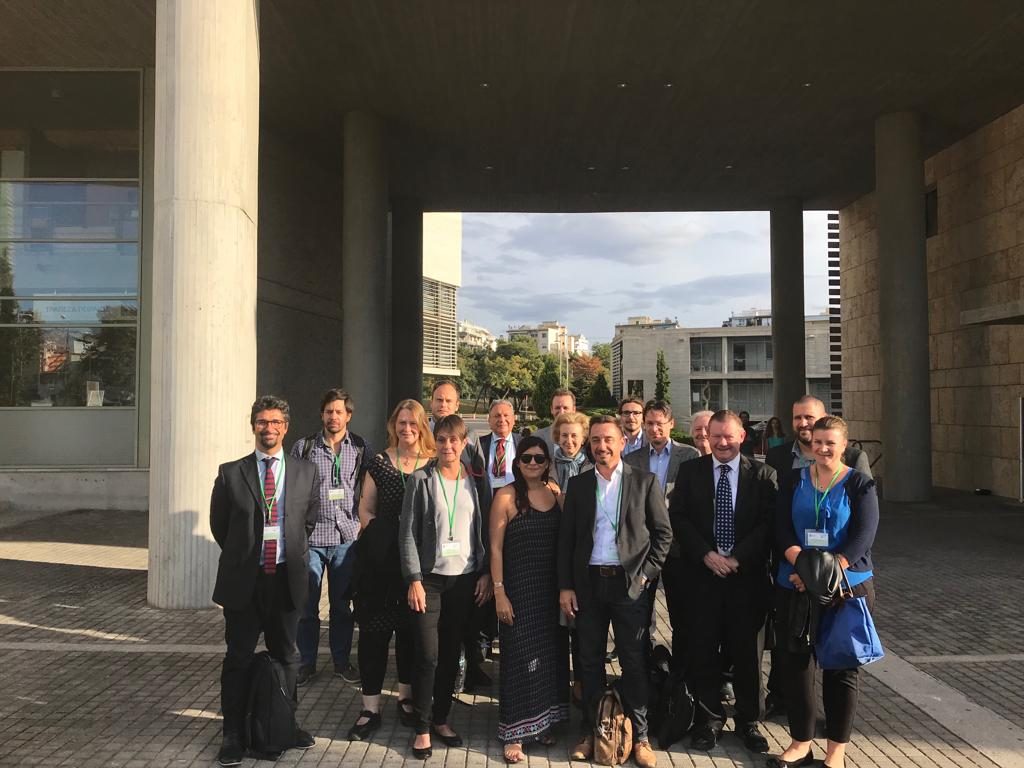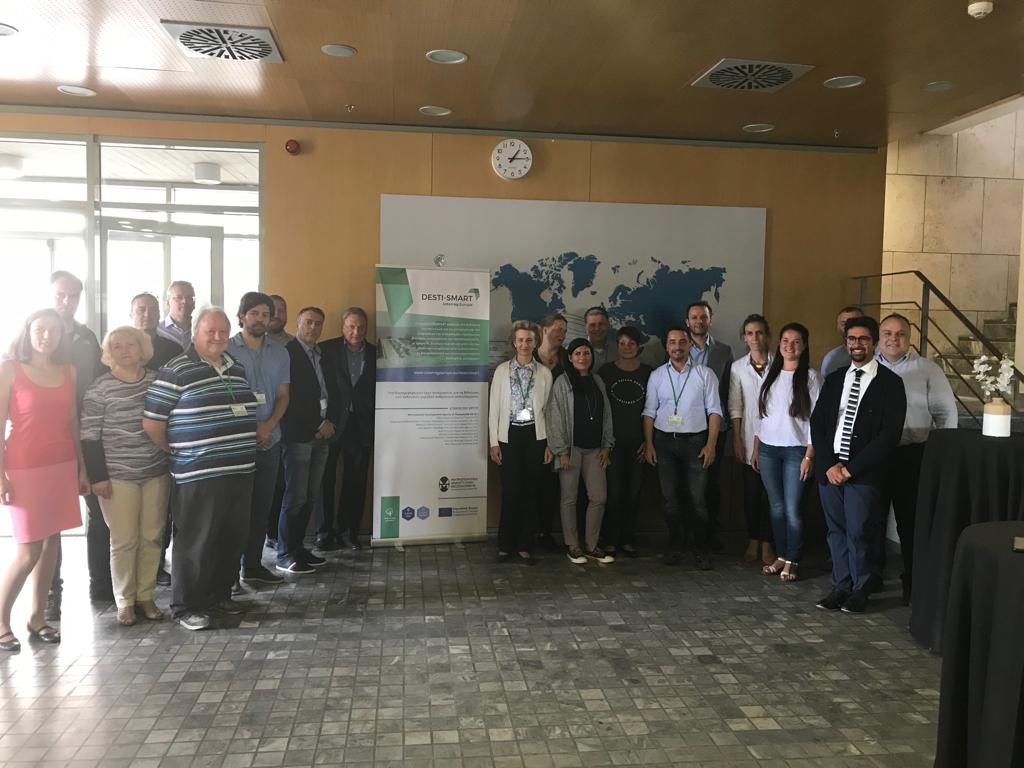
A new interregional cooperation project titled Delivering Efficient Sustainable Tourism with Low-carbon Transport Innovations: Sustainable Mobility, Accessibility and Responsible Travel (DESTI-SMART) has been launched, starting in September 2018. The project is co-funded by the European Regional Development Fund (ERDF) under the Interreg Europe programme.
The DESTI-SMART project is led by the Metropolitan Development Agency of Thessaloniki S.A in Greece with eight other destination partners: Autonomous Region of Sardinia in Italy, Experience Bremerhaven, Tourism, Marketing and Events Company Ltd. in Germany, Horários do Funchal, Transportes Públicos S.A. in Portugal, Hastings Borough Council in the United Kingdom, Mallorca Island Council – Environment Department in Spain, Latvian Greenways Association in Latvia, Lake Balaton Development Coordination Agency in Hungary and Pafos Regional Board of Tourism in Cyprus. Bournemouth University in the United Kingdom is the Advisory partner of the project, offering horizontal technical assistance and support to all nine partner destinations.
The Launch Conference of the DESTI-SMART project successfully took place on 27th-28th September 2018 in the City Council Room of the Thessaloniki City Hall. The Launch Conference coincided with the events for the World Tourism Day organised by the United Nations World Tourism Organisation (UNWTO), where DESTI-SMART was registered as a parallel action. DESTI-SMART is closely related to the Smart Destinations initiative of UNWTO. From Latvia there participated Stakeholders from Strenci, Ērgļi and Gulbenes municipalities.

The DESTI-SMART project introduces a combination of policies for sustainable mobility, accessibility and responsible travel with policies for sustainable tourism development. This is a common challenge that regional and local authorities face, as well as transport authorities, especially in busy tourist destinations with high traffic flows. Integrated policies and actions are promoted through interregional destination cooperation aiming at “smart destinations”.
The overall objective of DESTI-SMART is the combined improvement of transport and tourism polices at tourist destinations. This could be achieved by integrating strategies for sustainable mobility, accessibility and responsible travel within the planning processes for sustainable tourism development and services. The transition to a low-carbon economy is a major challenge for all project partners, through sustainable multimodal mobility, along with innovations, efficiency, resilience, policy learning and capacity building for local authorities in tourist destinations.
The project sub-objectives are:
1. To exchange experience on methods and measures for shifting tourism travel demand to low-carbon transport modes, for control and reduction of CO2 emissions, through incentives, awareness raising, travel behaviour change, promotion of Comodality, ElectroMobility, Responsible Travel for access to destinations, Accessibility for all to tourist sites and Sustainable Mobility within destinations.
2. To capitalise, share and build on best practices and proven measures for soft mobility and green mobility in destinations, exploiting the results of previous actions that have proven successful in sustainable tourism mobility and accessibility.
3. To carry out investigation and analyses of innovative low-carbon, sustainable multimodal mobility measures and systems within tourist destinations, by Intermodality improvements for enhanced connectivity and seamless travel between long distance access to destinations and mobility within destinations, inc. electric vehicles, light rail transit, active transport modes of cycling and walking.
4. To facilitate the introduction of policies and measures for accessible tourism in all forms.
5. To improve policy instruments and to mainstream into ESIF programmes.
6. To support the investment preparation for introduction of measures and systems for low-carbon sustainable mobility in destinations.
7. To link up with RIS3 in destinations.
8. To disseminate the findings and results through a wider network of destination and transport authorities.
During the two-days meeting, the project partners had the opportunity to present the regions they wish to focus on during the project, as well as current tourism development resources and mobility systems. They also referred to their expectations from the projects implementation as well as their main priorities towards the achievement of sustainability in tourist destinations.
The project approach is to seek and facilitate increased interaction, cooperation, innovations and integration between the tourism and transport sectors at destination regions, around priority key themes that are expected to contribute towards the transition to a low-carbon economy, through sustainable mobility and accessibility solutions.
The partners referred to some main priorities for the development of Smart Tourism Destinations as listed in the following:
A. Investments in low-carbon transport systems for visitors shifting from private cars to sustainable mobility means, including electromobility, flexible and mass transportation (led by Hastings Borough Council, UK).
B. Infrastructure and Intermodality Services for Visitors, Information and Communication Technologies and Mobile Applications, Mobility as Service (Mobility as a Service – MaaS) in tourism (led by Bremerhaven, Germany).
C. Accessibility to tourist attractions and services, accessible tourism for all (disabled, elderly, families with young children), (led by Mallorca Council, Spain).
D. Cycling and hiking facilities for guests, including cycling tourism and Greenways (led by Latvian Greenways Association, Latvia).
The project involves activities such as Interregional Workshops with study visits and Webinars, leading to the production of ‘Policy Guidelines’, staff exchanges in order to provide hands-on experience and thus strengthen the policy lessons, dedicated study tour where key issues and good practices can be demonstrated on the ground for the benefit of policy makers, stakeholder engagement, joint survey for setting the basis for a common approach on the development of common issues, feasibility studies for low-carbon transport systems serving visitor mobility, action plans preparation and implementation and mainstreaming of the results into Operational Programmes and European Structural and Investment Funds.
DESTI-SMART is one of the ten (10) projects approved in the 3rd Interreg Europe Call, out of a total of 44 proposals submitted in June 2017 under the category of “low-carbon economy” and one of the 54 approved projects in a total of 234 proposals submitted in all thematic priorities of the Interreg Europe Programme.
The total budget of the project is 1.84m out of which 85% is co-funded by ERDF.
DESTI-SMART Interreg Europe project is the result of an initiative since 2015 that has established a wider informal network of tourist destinations, regional/local authorities and tourism boards in 15 countries, towards smart destinations. The DESTI-SMART network was presented at the ECOMM Conference in Athens, Greece, in June 2016 and at the Visitor Economy Conference in Bournemouth, UK, in September 2017.
